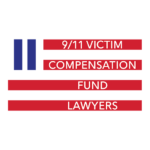The World Trade Center (WTC) Health Program is a federally funded, nationwide program designed to provide medical monitoring and treatment for residents, students, emergency responders, recovery and cleanup workers, and volunteers who were in the New York City disaster area during and immediately following the 9/11 attacks, at the Pentagon, and at the crash site near Shanksville, Pennsylvania. Among the services provided by the WTC Health Program are screenings and treatment for colon cancer related to the September 11th terrorist attacks. Colon cancer screening may be available as a part of the health monitoring exam assuming certain requirements are met.
When to screen for colon cancer
In deciding whether to screen an individual for colon cancer, the WTC Health Program follows government-screening guidelines set by experts who make recommendations about cancer screening and care. The WTC Health Program offers three types of colon cancer screening. Initial testing might look for small amounts of blood in your stool. A second type of test allows doctors to look inside the rectum and lower colon, while a third type of test examines the entire length of the colon. Your doctor will suggest the best procedure for cancer screening based upon your individual circumstances.
Individuals considering whether to undergo screening should weigh the benefits and risks. Colon cancer screening looks for cancer before you feel symptoms from the disease. Screening allows for earlier treatment, which may slow or even stop the cancer from progressing. Some procedures used to examine the colon do present minimal risk, but for most people the benefits of screening outweigh the potential risk. For some procedures you will receive medicine to help you relax. Talk to your doctor if you are concerned or have any questions about the procedures.
Colon cancer screening is recommended to begin at the age of 50, and should continue through age 75. The WTC Health Program may cover earlier or more frequent screening if you have a family history, a previous cancer diagnosis, or a condition that suggests a higher risk for colon cancer.
Screening results
If you receive a positive result, your doctor will explain what the positive result may mean for future testing and possible treatment. The WTC Health Program will cover additional screenings if you receive a positive result. The Program will also cover your treatment if the cancer is determined to be related to the September 11th terrorist attacks.
If you receive a negative result, your doctor will explain what the negative result means in more detail. The Program will cover future screening as recommended by the government-screening guidelines.
Private physician care
You may choose to have colon cancer screening through your private physician. However, the WTC Health Program can only pay for care provided through the Program.
Other services available from the WTC Health Program
If you meet the requirements, the WTC Health Program offers many benefits including the following:
- You will receive a free of charge medical examination by the best trained toxic exposure specialists.
- If necessary, the Program will refer you for all necessary diagnostic testing.
- If you are uninsured or underinsured, the Program will pay for medication, treatment, testing, care, and therapy.
- You will receive access to a nationwide network of clinics with providers across the country.
In addition to medical treatment, the WTC Health Program collects and analyzes physical and mental health data and conducts research to better understand health conditions related to the attacks. This information is vitally important to the 9/11 community.
To learn more about the WTC Health Program, visit its website.
Sullivan Papain Block McManus Coffinas & Cannavo PC has a long history with the WTC Health Program and the September 11th Victim Compensation Fund. If you have questions, you can reach out to us at (800) 962-9954 or via our contact page.
Share On:

